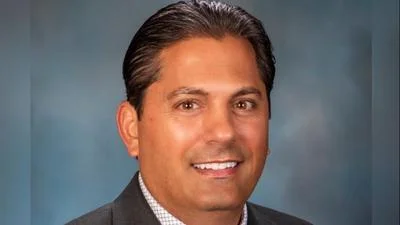Sen. Patrick Joyce | Facebook
Sen. Patrick Joyce | Facebook
State Sen. Patrick Joyce wants residents to know assistance in available for those in need of help with water and sewer utility bills.
“Water and sewer assistance is here,” Joyce posted on Facebook. “The Illinois Department of Commerce and Economic Opportunity has announced the Low-Income Household Water Assistance Program providing $42 million to help people avoid shut offs, assist households that have already had their services shut off or provide assistance to residents unable to pay their water and sewer bills.”
In partnership with the Illinois Department of Commerce and Economic Opportunity (DCEO), the Pritzker administration is now leveraging federal ARPA funds to help local families access and afford home energy and other essential services during the COVID-19 pandemic.
Adding to the state’s Low-Income Home Energy Assistance Program (LIHEAP) and the Community Services Block Grant (CSBG) program, the State’s Fiscal Year 2022 (FY 22) budget approves an expansion of the LIHEAP and CSBG programs for eligible Illinoisans seeking assistance to cover costs of utility bills, rent, temporary shelter, food, and other household necessities.
In Chicago over the last six years, the cost of water has tripled, amounting to the fastest rate of increase among six Great Lake cities as examined by WBEZ and American Public Media as part of a joint investigation delving into the rising cost of water usage across the region.
Further analysis shows that the most dramatic increases in water and sewer costs, which the city bills together, took place during the administration of now former Mayor Rahm Emanuel. Over his tenure, Emanuel twice proposed increases to the city’s water and sewer rates, both of which were approved by the Chicago City Council.
Many of the increases have hit those who can least afford it, with data showing poor families have been hit the hardest. Even as the city gets its water from nearby Lake Michigan, residents now pay more for their water than individuals in places like Phoenix, a city located in an Arizona desert that pipes in water from sources as far away as 300 miles away.
All told, the city is now owed more than $210 million in unpaid water bills, at one point resulting in The Chicago Department of Water Management moving to shut off water service to tens of thousands of individuals.
In Chicago, beginning in 2016, the rates that people pay for water increase every year based on inflation, according to the City.
In 2017, Chicago Ald. Carlos Ramirez-Rosa introduced the “Water for All” ordinance aimed at reducing rates for low-income residents earning less than the federal poverty level, WBEZ reported. More recently, Block Club Chicago reports Mayor Lori Lightfoot, calling access to water “a basic human right,” announced the city will no longer cut off a resident’s water service because of an unpaid utility bill.
The city’s new Utility Billing Relief and Debt Forgiveness program also aims to ease the load of overdue water bills by allowing cash-strapped residents to take advantage of such options as paying a discounted rate of 50% for water service, sewer and water-sewer tax bills. After one year of meeting the discounted payments, the city would forgive previously incurred debt.





 Alerts Sign-up
Alerts Sign-up